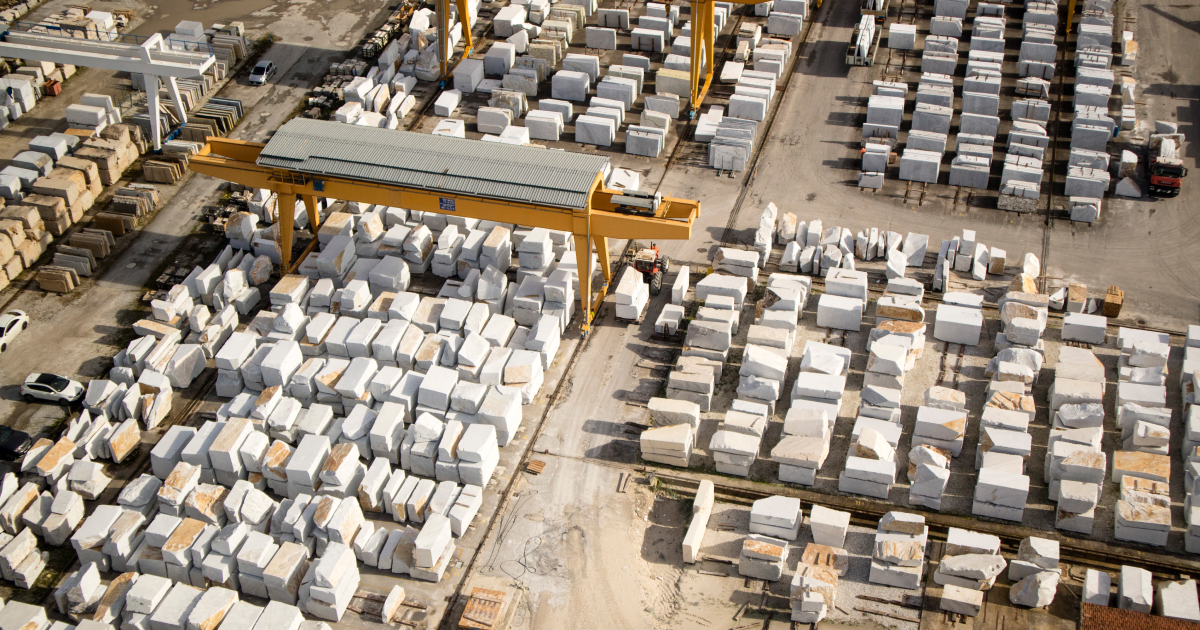Exporting marble from Turkey to international markets like the Middle East and Europe presents a unique set of challenges and opportunities. Turkey, renowned for its high-quality marble, has a long-standing tradition in the marble quarrying and processing industry. This blog post aims to share insights into the logistical considerations, market entry strategies, and success stories of Turkish marble exporters, providing a roadmap for businesses looking to navigate the complex landscape of international trade.
Understanding the Landscape

Challenges
- Logistical complexities: Exporting marble involves handling heavy, bulky materials, requiring specialized logistics to ensure safe and cost-effective transportation.
- Market competition: The Middle East and Europe are highly competitive markets with established players from Italy, Spain, and other marble-exporting countries.
- Regulatory hurdles: Navigating the diverse regulatory landscape across countries can be daunting, with each nation having its own set of import rules, standards, and tariffs.
Opportunities
- Growing demand: There’s a growing appetite for high-quality, unique marble varieties in both regions, driven by booming construction and interior design industries.
- Strategic location: Turkey’s strategic location serves as a bridge between East and West, providing a logistical advantage in serving both markets.
- Diverse range: The vast range of Turkish marble, from classic beige to unique patterns and colors, offers a competitive edge in catering to varied tastes and design needs.
Navigating the Market

Logistical Considerations
- Quality packaging: Invest in sturdy, reliable packaging to protect the marble during transit. Crates and containers should be designed to prevent breakage and weather-related damage.
- Efficient transportation: Optimize transportation routes and modes to balance cost and time, considering sea freight for longer distances and road transport for closer markets.
Market Entry Strategies
- Market research: Conduct thorough research to understand the preferences, trends, and requirements of each target market. Tailoring your product offering to meet local tastes can significantly boost acceptance.
- Building relationships: Establish strong relationships with local distributors, architects, and construction firms. Participating in trade shows and industry events in target markets can be a valuable strategy for networking and showcasing your products.
- Digital presence: Leverage digital marketing and social media to reach potential customers directly. A strong online presence can enhance brand visibility and facilitate connections with buyers and partners abroad.
Success Stories
Turkish marble exporters have successfully penetrated international markets by focusing on quality, innovation, and customer service. For instance, one Turkish company expanded its reach in the Middle East by offering bespoke marble designs, catering to the luxury construction segment. Another success story involves a Turkish exporter forming a strategic partnership with a European distributor, enabling them to navigate the complex regulatory environment and establish a strong foothold in the market.
Looking Ahead
Exporting marble to the Middle East and Europe is not without its challenges, but the opportunities it presents are vast. The key to success lies in understanding the unique aspects of each market, leveraging Turkey’s competitive advantages, and adopting a flexible, informed approach to international trade. By focusing on quality, building strong relationships, and staying attuned to market trends, Turkish marble exporters can achieve sustained growth and success in these dynamic regions.




